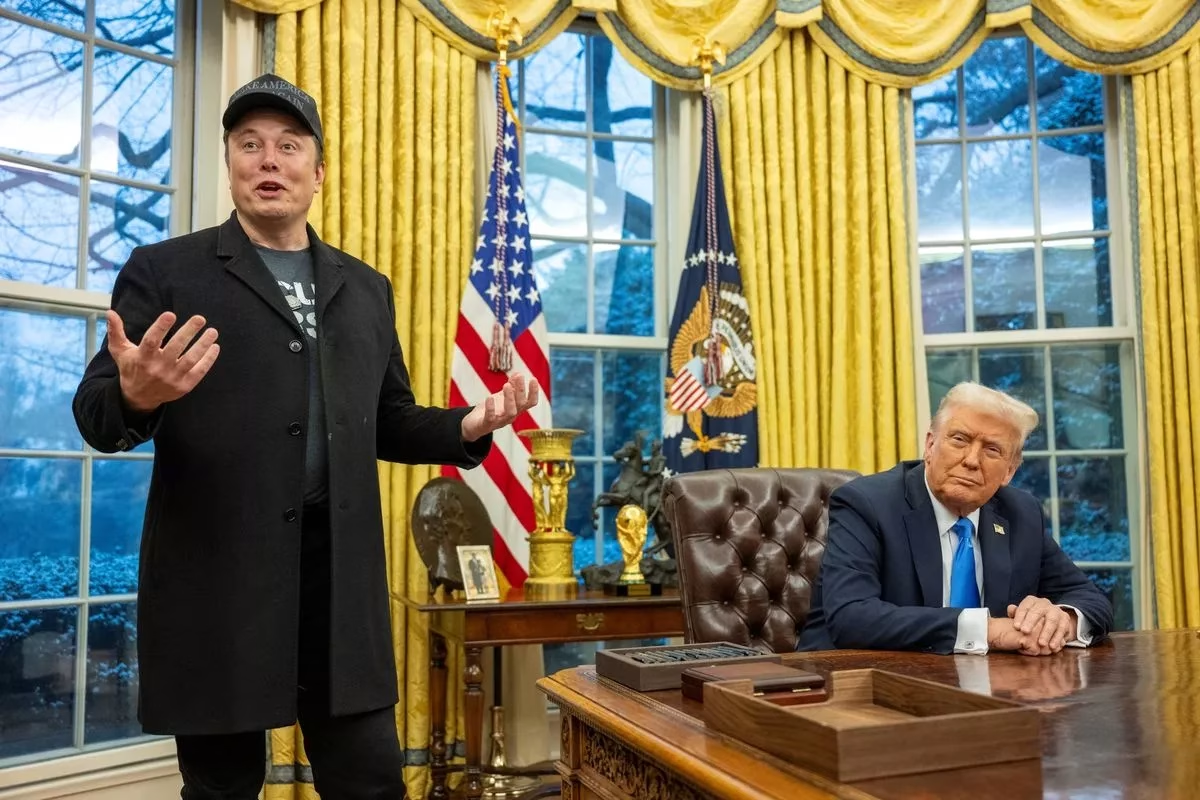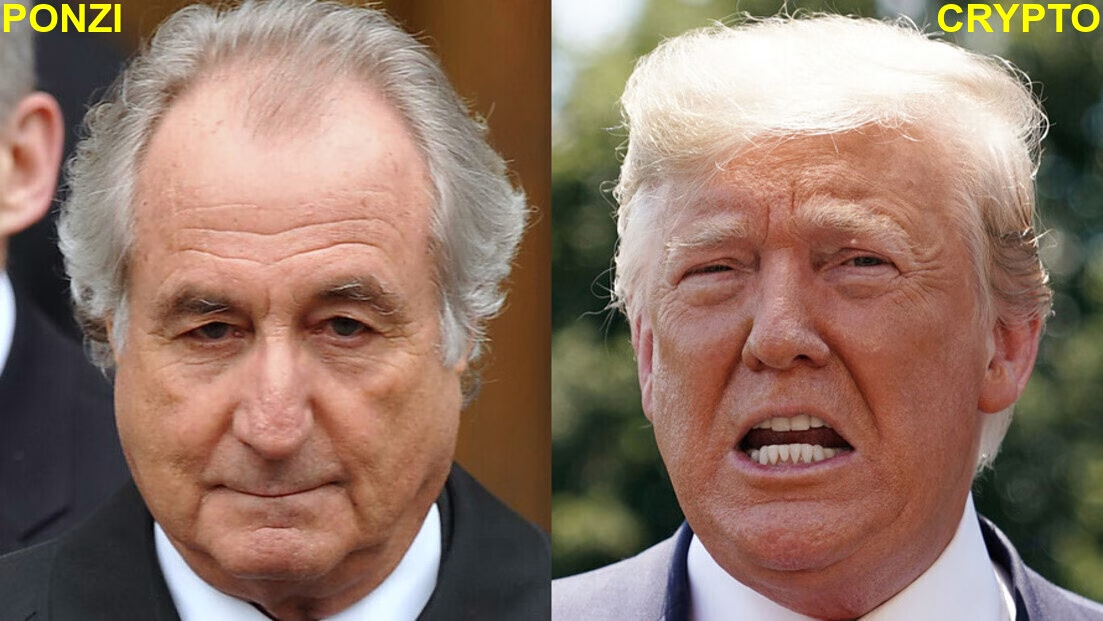By Tony Bruce & Mary Jones | Friday, March 07, 2025 | 9 min read
Billionaires have always wielded significant influence in American politics, but the connection between Elon Musk and Donald Trump has taken that power to unprecedented heights. Musk’s massive $280 million contribution to Trump’s campaign wasn’t just a show of political support—it was a strategic investment. And it has paid off handsomely, granting him direct access to government agencies, high-level meetings, lucrative contracts, and even sensitive data on American citizens.
This kind of influence isn’t accidental—it’s the direct result of policies that have tilted the playing field in favor of the ultra-wealthy. The Supreme Court’s Citizens United ruling opened the floodgates for unlimited political spending, allowing billionaires like Musk to buy a seat at the table where decisions are made. Instead of a government that serves the people, we now have a system where those with the deepest pockets shape policies to benefit themselves, often at the expense of everyday Americans.
This isn’t about making the government more efficient or running it like a business. If that were the case, the administration wouldn’t have started by systematically firing inspectors general—the very officials responsible for uncovering waste, fraud, and abuse across federal agencies. Instead, what we’re witnessing is a deliberate effort to dismantle oversight and accountability, ensuring that those at the top can operate without scrutiny.
The removal of watchdogs is just the beginning. Trump’s administration has also targeted the FBI and foreign intelligence services, institutions that play a crucial role in investigating financial crimes, including money laundering and corruption. By weakening these agencies, Trump and his circle have effectively created a system where billionaires like Musk can move money and influence unchecked.
This erosion of oversight is particularly alarming given Trump’s track record. Since taking office, he has dismantled post-9/11 financial regulations designed to prevent illicit money flows, making it easier for powerful figures to hide their wealth, avoid taxes, and engage in shady financial dealings. What was once a government committed to enforcing financial transparency has now become a playground for the ultra-wealthy, where rules are rewritten to benefit those with deep pockets.
The alliance between Musk and Trump underscores a dangerous reality: America’s political system is increasingly being shaped by and for the billionaire class. When the wealthiest individuals can buy influence at the highest levels, policies are no longer made in the public’s interest but rather to serve those with the money to bend the system in their favor.
What’s unfolding isn’t just political favoritism—it’s a fundamental threat to democracy. A government that caters to the financial elite at the expense of oversight, accountability, and the rule of law ceases to serve the people. The consequences of this unchecked power grab will be felt by everyday Americans, who will bear the brunt of policies designed to enrich a privileged few.
As this power imbalance grows, a critical question looms: How much longer can democracy withstand a system where billionaires set the rules to serve their own interests? When extreme wealth is combined with political loopholes that allow secrecy, and a media landscape that often fails to hold the powerful accountable, democracy itself is at risk.
A government that truly represents the people relies on transparency and accountability. But when those with massive financial power can shape policy behind closed doors, the public is left in the dark. The result? A democracy that starts looking more like an exclusive club for the ultra-wealthy—where the voices of everyday citizens are drowned out by those who can afford to buy influence. If this continues unchecked, the very foundation of democratic governance could crumble, leaving behind a system that serves the privileged few instead of the many.
Then came the meme coin scandal—a scheme that might be one of the most blatant forms of corruption yet. What is the meme coin? Essentially, it’s a vehicle that allows foreign oligarchs, corporate elites, and anyone else looking to buy influence to secretly funnel money to Donald Trump. No one knows exactly who’s purchasing it, but one thing is certain: every time someone does, Trump profits. It’s an open, untraceable pipeline for those seeking political favors. Even worse, he controls 80% of the coin supply, meaning he can manipulate the price—waiting for deep-pocketed buyers to artificially inflate its value before cashing in.
This isn’t just shady—it’s a whole new level of pay-to-play politics. Imagine a world where powerful figures quietly buy up Trump’s coin, watch the price soar, and then whisper in his ear, “That was me. I made you that money. Now, here’s what I need in return.” No paper trails, no oversight—just raw corruption disguised as a financial gimmick.
And that’s just the beginning.
On January 20th, Trump takes office and immediately rolls out an energy agenda that seems tailor-made for the oil and gas industry. Reports suggest that, during the campaign, Trump cut a deal: in exchange for a billion dollars in contributions, he’d ensure policies that benefited fossil fuel companies at the expense of their competitors. Sure enough, within days of taking office, he freezes permits on wind energy projects while giving oil and gas companies exactly what they asked for.
Then, five days in, something even more alarming happens: Trump fires 17 inspectors general—the watchdogs responsible for rooting out corruption in federal agencies. If you were looking to steal from the American people without getting caught, that’s exactly what you’d do—get rid of the people standing in your way.
Two days later, he fires a key member of the National Labor Relations Board, effectively crippling the agency. Why does that matter? Because the billionaires backing Trump—including Elon Musk and other corporate giants—have ongoing labor disputes before the NLRB. By shutting it down, Trump protects his allies from scrutiny.
The corruption runs even deeper when Trump discreetly hands out over $800,000 in stock to key members of his administration, including Kash Patel and Linda McMahon—both of whom now have a financial stake in Trump’s media empire. Patel, who serves as a director at TMTG, failed to disclose this stock award during his Senate confirmation hearing, raising serious ethical concerns. This setup creates yet another avenue for backdoor deal-making—anyone seeking political favors can simply buy out their shares, effectively turning influence into a commodity that’s up for sale to the highest bidder.
Then comes the weaponization of the Department of Justice. Within days, Trump’s DOJ drops a civil case against SpaceX, a company owned by his ally Elon Musk. A week later, a Republican congressman facing legal trouble suddenly sees his case disappear. Soon after, a new DOJ initiative, “Operation Whirlwind,” emerges—targeting critics of Musk and Trump while letting their allies off the hook.
Meanwhile, Trump takes direct aim at consumer protection. He fires the head of the Consumer Financial Protection Bureau and announces plans to gut the agency—one that, at the time, was investigating Musk and other major Trump backers. Now, they no longer have to worry about oversight.
By early February, Trump is using the White House to advance his own business interests. He personally intervenes in the dispute between the PGA and the Saudi-backed LIV Golf league—because Trump’s golf courses host LIV tournaments, and a resolution means more money in his pocket.
Then, in a stunning move, his administration moves to weaken the Foreign Agents Registration Act—the very law meant to prevent foreign governments from secretly influencing U.S. politics. Under the previous administration, officials got caught taking money from foreign governments without disclosing it. Now, Trump is making sure his allies can do the same—without consequences.
And the corruption doesn’t stop there. One of the most brazen moves comes when Trump’s DOJ drops corruption charges against Eric Adams in exchange for his political loyalty. The deal was so outrageous that multiple DOJ officials resigned in protest. The message? If you’re an elected official who plays ball with Trump, you can get away with almost anything.
In another shocking development, Trump orders the DOJ to stop enforcing laws that prevent American companies from paying bribes overseas—effectively giving corporations a green light to engage in corruption on a global scale.
At the same time, his administration arranges a $400 million government purchase of armored Teslas—an enormous leap from the $483,000 previously allocated for electric vehicles. This isn’t about national security—it’s a windfall for Musk.
Meanwhile, reports emerge that Musk’s people have infiltrated the Department of Labor, gaining access to confidential OSHA enforcement data. Not just against Musk’s own companies—but against his competitors, too. The message is clear: those who support Trump gain inside access, while everyone else plays by a different set of rules.
The corruption spreads further when key regulators at the FDA—specifically those overseeing Musk’s brain-chip company, Neuralink—are mysteriously fired. The person making the decision? Someone with a pending application before the agency. This level of blatant interference is unheard of.
Then, Trump slashes the FDA’s budget, potentially delaying approvals for life-saving drugs while giving his allies in the unregulated health industry a massive advantage.
Four days later, the IRS follows suit, cutting 7,000 auditor positions—many of them responsible for investigating corporate tax fraud. Who benefits? The same billionaires and corporations backing Trump.
And just as expected, Musk’s social media platform sees a surge in advertising from companies that—coincidentally—have government business on the line. Not because they see value in the platform, but because Musk is now one of the most powerful figures in Washington.
This is just the beginning. Never before has the U.S. government been so openly transformed into a tool for corruption. What we’re witnessing isn’t just political favoritism—it’s the systematic dismantling of accountability, designed to ensure that Trump, Musk, and their inner circle can operate without limits.
If this pattern of corruption continues unchecked, the very foundation of democracy could crumble. Meanwhile, Justice Thomas might be touring the country in a lavish motorhome, courtesy of Elon Musk and other billionaire elites, while Justice Alito and his wife enjoy lavish dinners at Mar-a-Lago and teeing off at Doral—living large on the generosity of those who stand to benefit the most from a compromised system.
Copyright 2025 FN, NewsRoom.





